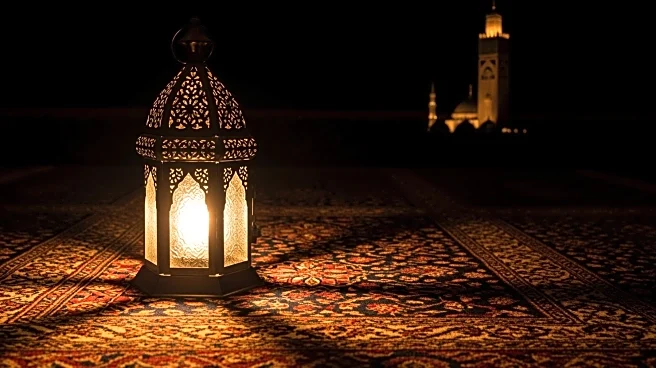What's Happening?
In Morocco, government-written sermons are urging youth to engage in public affairs following recent protests demanding better social and economic conditions. The sermons, delivered in mosques across the country, emphasize the importance of civic participation
and national service. This initiative comes after the Gen Z 212 movement organized protests against government spending priorities. The sermons aim to encourage dialogue and involvement in political processes, reflecting the government's response to youth grievances.
Why It's Important?
The sermons represent a strategic effort by the Moroccan government to address youth discontent and promote civic engagement. Encouraging young people to participate in public affairs can lead to more inclusive governance and address societal challenges. The initiative highlights the role of religious institutions in shaping public discourse and influencing political participation. It also underscores the government's attempt to balance maintaining stability with addressing public demands.
What's Next?
The Moroccan government is expected to continue promoting youth engagement through various measures, including simplifying election candidacy requirements and increasing budget allocations for health and education. These efforts aim to address the root causes of youth dissatisfaction and foster a more participatory political environment. Observers will be watching to see how these initiatives impact youth involvement and the broader political landscape in Morocco.
Beyond the Headlines
The use of sermons to influence public participation raises questions about the intersection of religion and politics. It highlights the ethical considerations of using religious platforms for political messaging and the potential impact on religious freedom. The initiative also reflects broader trends in the region, where governments use religious institutions to promote state policies and counter dissent.















